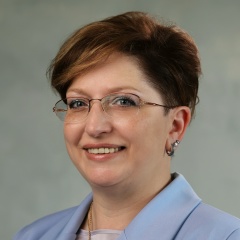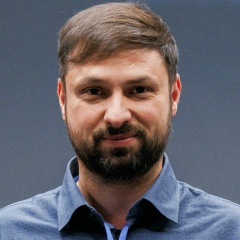Приглашаем на вебинар «Общественный контроль за соблюдением публичными должностными лицами законодательства о декларировании доходов и расходов», который состоится в четверг, 10 декабря, в 17:00.
Идея о том, что чиновник публикует во всеобщем доступе информацию о своей зарплате и имуществе, вызывает воодушевление. Но что реально стоит за публикацией деклараций публичных должностных лиц? Раскрытие сведений о доходах и имуществе - механизм, поддерживающий прозрачность органов власти или частных компаний и создающий пространство для общественного контроля. Как сделать этот механизм работающим, а не ограничиваться праздным любопытством и "копанием в чужих карманах"?
Ведущий вебинара, заместитель директора Трансперенси Интернешнл - Россия Андрей Жвирблис расскажет о международных практиках раскрытия доходов и имущества чиновниками, как и когда эта система появилась в России, как она работает сегодня у нас, какие возможности для общественного контроля возникают, благодаря ей. Мы расскажем о недостатках российской системы и напрасных надеждах, связанных с декларациями чиновников. Трансперенси Интернешнл - Россия в течение четырех лет собирает единую базу сведений о доходах и имуществе публичных должностных лиц - Декларатор. Участники вебинара смогут познакомиться с принципами работы проекта и, при желании, принять участие в его развитии.
Во время вебинаров можно будет задавать вопросы спикеру.
Инструкцию по подключению к вебинару вы получите по электронной почте в ближайшее время. Слушателям, которые не зарегистрировались на цикл лекций на платформе Timepad и (или) «Сахаровского центра», необходимо зарегистрироваться по ссылке: http://www.sakharov-courses.ru/login/signup.php. А затем нажать «записаться на курс» здесь: http://www.sakharov-courses.ru/course/view.php?id=11.
На предыдущей лекции, 19 ноября Елена Панфилова рассказала об истории международного регулирования противодействия коррупции. Тридцать лет назад только в единичных государствах был принят на государственном уровне закон о борьбе с коррупцией. В других же считалось нормальным получить налоговый вычет из сумм, которые были потрачены предпринимателем в качестве коррупционных издержек, например, для открытия бизнеса. Что изменилось сегодня и как именно произошла трансформация в восприятии коррупции, а также какие успехи в этом направлении достигнуты Россией, вы можете узнать, прослушав запись лекции: http://www.sakharov-courses.ru/videof/403.html (для просмотра нужно зайти в свой аккаунт).
Какие есть методы осуществления гражданского контроля, как изменить отношение общества к коррупции и многое другое вы узнаете на наших следующих вебинарах.
Идея о том, что чиновник публикует во всеобщем доступе информацию о своей зарплате и имуществе, вызывает воодушевление. Но что реально стоит за публикацией деклараций публичных должностных лиц? Раскрытие сведений о доходах и имуществе - механизм, поддерживающий прозрачность органов власти или частных компаний и создающий пространство для общественного контроля. Как сделать этот механизм работающим, а не ограничиваться праздным любопытством и "копанием в чужих карманах"?
Ведущий вебинара, заместитель директора Трансперенси Интернешнл - Россия Андрей Жвирблис расскажет о международных практиках раскрытия доходов и имущества чиновниками, как и когда эта система появилась в России, как она работает сегодня у нас, какие возможности для общественного контроля возникают, благодаря ей. Мы расскажем о недостатках российской системы и напрасных надеждах, связанных с декларациями чиновников. Трансперенси Интернешнл - Россия в течение четырех лет собирает единую базу сведений о доходах и имуществе публичных должностных лиц - Декларатор. Участники вебинара смогут познакомиться с принципами работы проекта и, при желании, принять участие в его развитии.
Во время вебинаров можно будет задавать вопросы спикеру.
Инструкцию по подключению к вебинару вы получите по электронной почте в ближайшее время. Слушателям, которые не зарегистрировались на цикл лекций на платформе Timepad и (или) «Сахаровского центра», необходимо зарегистрироваться по ссылке: http://www.sakharov-courses.ru/login/signup.php. А затем нажать «записаться на курс» здесь: http://www.sakharov-courses.ru/course/view.php?id=11.
На предыдущей лекции, 19 ноября Елена Панфилова рассказала об истории международного регулирования противодействия коррупции. Тридцать лет назад только в единичных государствах был принят на государственном уровне закон о борьбе с коррупцией. В других же считалось нормальным получить налоговый вычет из сумм, которые были потрачены предпринимателем в качестве коррупционных издержек, например, для открытия бизнеса. Что изменилось сегодня и как именно произошла трансформация в восприятии коррупции, а также какие успехи в этом направлении достигнуты Россией, вы можете узнать, прослушав запись лекции: http://www.sakharov-courses.ru/videof/403.html (для просмотра нужно зайти в свой аккаунт).
Какие есть методы осуществления гражданского контроля, как изменить отношение общества к коррупции и многое другое вы узнаете на наших следующих вебинарах.
We invite you to the webinar "Public control over the observance by public officials of the legislation on the declaration of income and expenses", which will be held on Thursday, December 10, at 17:00.
The idea that an official publishes in the public domain information about his salary and property is encouraging. But what is really behind the publication of declarations of public officials? Disclosure of information on income and property is a mechanism that supports the transparency of government or private companies and creates a space for public control. How to make this mechanism work, and not be limited to idle curiosity and "digging in someone else's pockets"?
The host of the webinar, Deputy Director of Transparency International - Russia Andrei Zhvirblis will talk about the international practices of disclosing income and property by officials, how and when this system appeared in Russia, how it works today with us, what opportunities for public control arise thanks to it. We will talk about the shortcomings of the Russian system and the vain hopes associated with the declarations of officials. For four years, Transparency International - Russia has been collecting a unified database of information on the income and property of public officials - the Declarator. Participants in the webinar will be able to get acquainted with the principles of the project and, if desired, take part in its development.
During the webinars it will be possible to ask questions to the speaker.
You will receive instructions for connecting to the webinar by e-mail in the near future. Students who have not registered for a series of lectures on the Timepad platform and / or the Sakharov Center should register at: http://www.sakharov-courses.ru/login/signup.php. And then click "register for the course" here: http://www.sakharov-courses.ru/course/view.php?id=11.
At a previous lecture, November 19, Elena Panfilova spoke about the history of international anti-corruption regulation. Thirty years ago, only in a few states a law on combating corruption was adopted at the state level. In others, it was considered normal to receive a tax deduction from the amounts that the entrepreneur spent as corruption costs, for example, to open a business. What has changed today and how exactly the transformation in the perception of corruption has occurred, as well as what successes Russia has achieved in this direction, you can find out by listening to the lecture recording: http://www.sakharov-courses.ru/videof/403.html (for viewing need to log into your account).
What are the methods of exercising civilian control, how to change the attitude of society towards corruption and much more you will learn at our next webinars.
The idea that an official publishes in the public domain information about his salary and property is encouraging. But what is really behind the publication of declarations of public officials? Disclosure of information on income and property is a mechanism that supports the transparency of government or private companies and creates a space for public control. How to make this mechanism work, and not be limited to idle curiosity and "digging in someone else's pockets"?
The host of the webinar, Deputy Director of Transparency International - Russia Andrei Zhvirblis will talk about the international practices of disclosing income and property by officials, how and when this system appeared in Russia, how it works today with us, what opportunities for public control arise thanks to it. We will talk about the shortcomings of the Russian system and the vain hopes associated with the declarations of officials. For four years, Transparency International - Russia has been collecting a unified database of information on the income and property of public officials - the Declarator. Participants in the webinar will be able to get acquainted with the principles of the project and, if desired, take part in its development.
During the webinars it will be possible to ask questions to the speaker.
You will receive instructions for connecting to the webinar by e-mail in the near future. Students who have not registered for a series of lectures on the Timepad platform and / or the Sakharov Center should register at: http://www.sakharov-courses.ru/login/signup.php. And then click "register for the course" here: http://www.sakharov-courses.ru/course/view.php?id=11.
At a previous lecture, November 19, Elena Panfilova spoke about the history of international anti-corruption regulation. Thirty years ago, only in a few states a law on combating corruption was adopted at the state level. In others, it was considered normal to receive a tax deduction from the amounts that the entrepreneur spent as corruption costs, for example, to open a business. What has changed today and how exactly the transformation in the perception of corruption has occurred, as well as what successes Russia has achieved in this direction, you can find out by listening to the lecture recording: http://www.sakharov-courses.ru/videof/403.html (for viewing need to log into your account).
What are the methods of exercising civilian control, how to change the attitude of society towards corruption and much more you will learn at our next webinars.

У записи 3 лайков,
1 репостов.
1 репостов.
Эту запись оставил(а) на своей стене Алена Вандышева









![Стас Однолетков -=[strast]=- Стас Однолетков -=[strast]=-](https://sun9-50.vkuserphoto.ru/s/v1/ig2/BQKIUfD3kthNCNNY9BS69xiPt_GjwVRhAU8D64L6gfeFjcmrTqYrLAC9NKgCppVxwhm79Mi5RypIHhjSHOhQK2uy.jpg?quality=95&crop=347,544,400,400&as=32x32,48x48,72x72,108x108,160x160,240x240,360x360&ava=1&cs=200x200)














